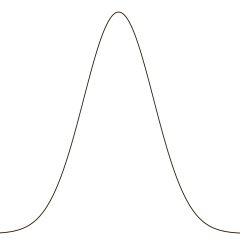“May you live every day of your life.”
Jonathan Swift

Created with DALL-E2 (https://openai.com/dall-e-2/)
In life we often strive for the philosophical, the reasoned approach, the thoughtful decision, the meaningful action. A picture of a contemplative life, to me at least, reflects the life well lived. A person who acts with purpose from a structure of well reasoned values in the world the constantly seeks to further understand, seems like the kind of person one should reasonably strive to be. Throughout their short time on this earth, exploring the depths of what it is to be human, how it is we can know anything at all, and why something, rather than nothing exists in this universe we call home. In essence, the contemplation of philosophy is the ultimate achievement of human creativity, an end of the utopian society, and an act toward which we all may strive.
From a naive view, one may question how people can go about a life in pursuit of seemingly arbitrary topics of investigation give this grand narrative. How is it that one can spend a life dedicated to the identification of insects, when questions of moral realism linger unanswered?
How can one commit to refining the culinary techniques required to produce a masterful and unique dish, when the possibility of parallel universes remains open? Are there not more pressing issues, are there not more interesting topics to which one can dedicate their life?
The first consideration is one of practicality. Whilst it would be wonderful if we could all sit around and pontificate our days away, most people in this world simply need to act practically in order to eat, remain in safe shelter, and keep healthy. The second consideration is one of preference, for some, these considerations are simply too abstract and hold no intrinsic interest as they do not impact the day to day existence they inhabit. Let us for the moment pass these two considerations, and imagine a somewhat utopian existence in which individuals are free to explore the objects of their desire.
In this world, I believe, we all would pursue philosophical ends. The entomologist continues to study insects, the chef continues to refine her art. These acts go beyond what may be considered by the outside observer. Yes, insects are of interest themselves. They’re strange creatures. But what does the study of their lives, their various forms and functions reveal to us about the world? We consider their behaviours, and reflect on the influence of the environment on all living creatures, ourselve inclusive. We think of their myriad types, many likely undiscovered, and sit in awe of the complexity and vastness that exists within our small corner of the universe. The chef, too a philosopher, explores aesthetics. What is beauty? How can a story be conveyed without words, and how does the experience differ for each individual seated eating their food? The distance runner searches for an expansive sense of self, connecting to the world around them in new and unique ways as they push the physical boundaries of fatigue. Which is the real world, the one he experiences at kilometre one, or at kilometre fourty?
Whilst academic and direct philosophical pursuits offer a direct means of grappling with the philosophical questions that characterise our very human lives, there are countless ways in which each and every person challenges these uncertainties every day. If utopia is a world in which the pursuit of contemplation is carried out as an end in and of itself, perhaps we would do well to recognise it seeping through, each and every day, in the world around us.
